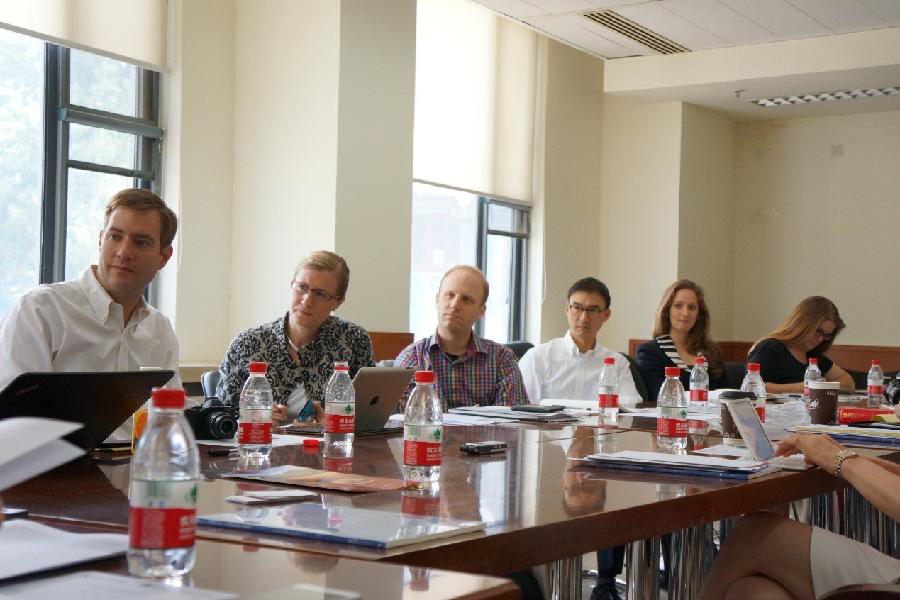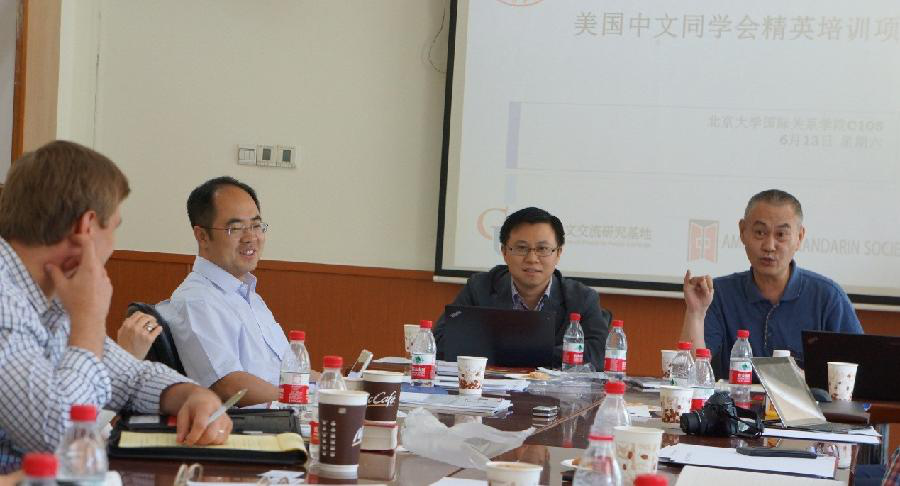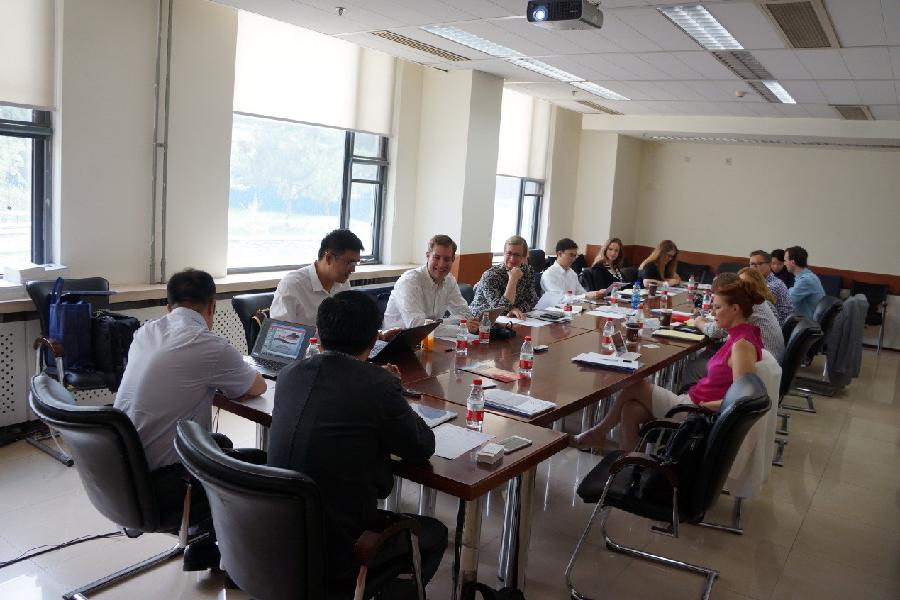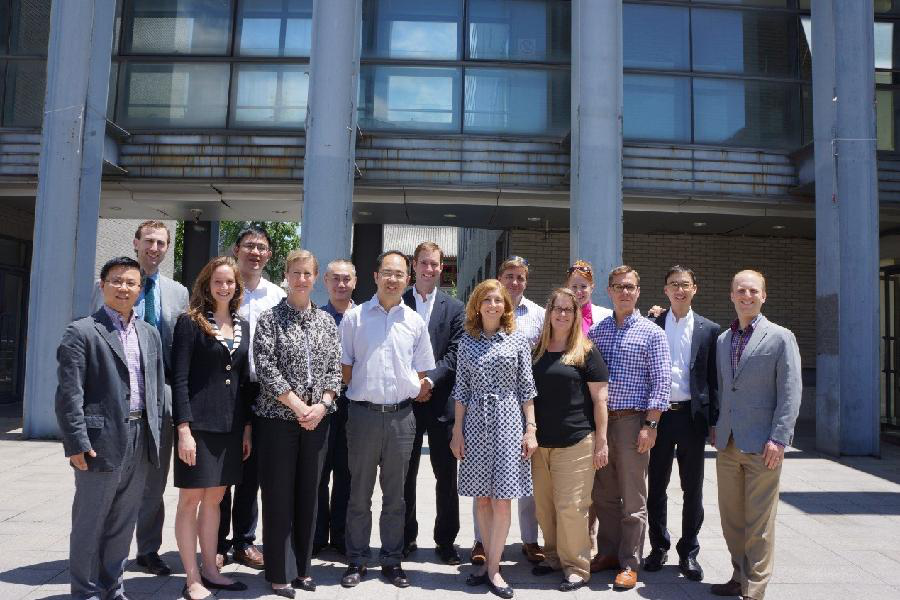On the morning of June 13 th, 2015, members of the American Mandarin Society Leadership Elite Training Program visited theInstitute for Global Cooperation and Understanding, Peking University (formerly known as Institute for China-US People-to-People Exchange).Eleven young elites in American politics, business and academic circles, including Nathaniel Ahrens, President of the American Mandarin Society and Director of the Office of China Affairs of the University of Maryland, attended the training course organized by the Institute.

Wang Dong, Executive Director of theInstitute for Global Cooperation and Understanding(iGCU), Professor of the School of International Studies, Peking University, extended a warm welcome to members of the American Mandarin Society Leadership Elite Training Program.Pan Wei, Professor of the School of International Studies, Peking University, Zhao Lei, Professor of the International Institute for Strategic Studies of the Party School of the Central Committee of CPC, and Dr. Wang Wei of the Marxist Theory Teaching and Research Department of the Party School of the Central Committee of CPC, respectively gave detailed introductions of the “Belt and Road Initiative”, “Connotations of socialism with Chinese characteristics” and “Lack of mainstream ideology in China today” under such themes as “The development of Chinese ideology”, “The Belt and Road Initiative and the new normal of China’s economy” and “Socialism with Chinese characteristics in the era of globalization”.The in-depth analyses and interpretations of these three scholars aroused strong interest and discussion among American members on these issues.


Professor Zhao Lei pointed out how to translate the “Belt and Road” in English is very important, and should be a concept acceptable to the international community.He believed that the “Belt and Road” faces two main bottlenecks: I. Lack of consensus exists between the United States and Russia on this issue, but the lack of consensus among major powers might become the obstacle to the implementation of the “Belt and Road”. II. China does not know much about the countries along the “Belt and Road”.The members of the American Mandarin Society Leadership Elite Training Progra m interacted with Professor Zhao Lei on such issues as the red line of the United States in the Asia-Pacific Region and the relationship between military strategy and the “Belt and Road”.Dr. Wang Wei reviewed the history, historical background and development course of the socialism with Chinese characteristics, and analyzed it in combination with the globalization.In the last lecture, Professor Pan Wei conducted in-depth discussion on the current ideology in combination with the social history and reality of China.Professor Pan Wei’s excellent lecture enlighted American students to understand the changes in Chinese society in recent decades and the traditional changes in Chinese political system.
Prior to this, members of the American Mandarin Society visited the China Executive Leadership Academy Pudong and Shanghai Overseas Chinese Foundation, and conducted on-site visits to Kunshan City in Jiangsu Province and the Shanghai Greenland Group in order to gain a more in-depth and accurate understanding of China.

Note: The American Mandarin Society is a non-partisan and non-profit organization consisting of Americans who have studied, conducted scientific research and lived in China, aiming to “support and cultivate the managers and leaders of future China-US relations” in the United States.At present, these members are young elites from all walks of life in the United States who speak good Chinese and have the will and potential to promote the development of China-US relations in the future.
